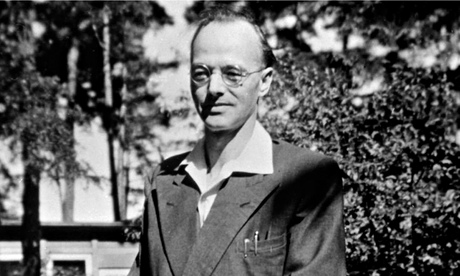
After two major 2014 books that featured “new insights” into Winston Churchill and those around him, Henry Hemming’s Geoffrey Pyke biography Churchill’s Iceman and Boris Johnson’s laudatory The Churchill Factor, the paperback publication of Graham Farmelo’s much-admired examination of his involvement in the atomic race might seem a cigar too far for all but the most committed of Churchillians. Thankfully, Farmelo, winner of the Costa prize for biography for his previous book, The Strangest Man, has more in mind than simply retreading the by now well-worn ground of Churchill’s many political careers. Instead, he chooses to concentrate on the genesis of the nuclear bomb, from the first cautious experiments, predominantly by émigré scientists, to the aftermath of the attacks on Hiroshima and Nagasaki.
With such a sprawling canvas to cover, Farmelo needs some big characters, and thankfully his book is full of them – whether it’s the great Ernest Rutherford, a slovenly but brilliant man “with a bay window of a belly” and described by the press as “the generalissimo of the atom-smashing artillery”, or his less talented but more politically minded rival Frederick Lindemann. Figures as eclectic as HG Wells, Frank Sinatra and Joseph McCarthy also make an appearance.
Where Farmelo excels is in depicting the scientists who form the core of his tale as men of immense vision who could nonetheless be petty, blinkered or, in the case of Lindemann, a committed toady and antisemite who was nevertheless able to harness his gifts into the development of atomic power. Farmelo convincingly suggests that, although the atomic bomb was an American rather than British invention, it was not for want of energy or intellectual curiosity in England that the ragtag group of scientists did not make the breakthrough first.
Farmelo keeps the emphasis firmly on the people involved – a section dealing with the treachery of the Soviet double agent Klaus Fuchs is particularly gripping and affecting – and manages to make complex scientific processes seem entirely comprehensible. If this fine book has a flaw, it is that ultimately the stories of the politicians (with the honourable exception of Churchill) seem much less interesting than the charismatic and engaging scientists, meaning that readers might become impatient to return to the laboratory. But this is a minor quibble. In the acknowledgements, Farmelo calls the book “an agreeable companion I am rather sad to see go its own way”. Many will enjoy its company immensely.
Churchill’s Bomb is published by Faber (£10.99). Click here to buy it for £8.79

